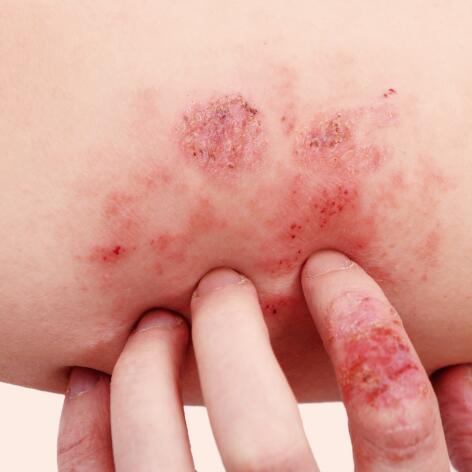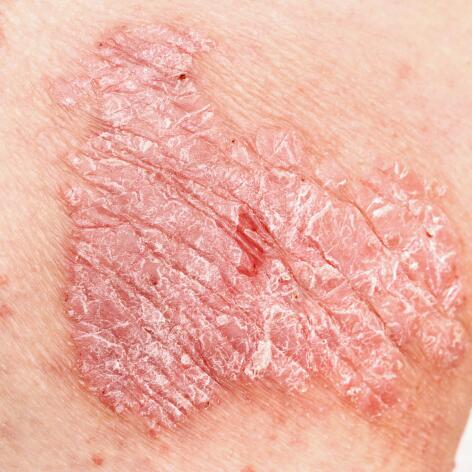Eczema and psoriasis are not uncommon, but they are not well known to the general public and are surrounded by many misconceptions. No, these skin diseases (dermatoses) are not contagious. No, they are not caused by a lack of hygiene. What if we could help you to see things more clearly?
Eczema is a chronic inflammatory skin disease, which manifests itself as red patches, irritation, itching (also called pruritus), with alternating periods of attacks (flare-ups) and lulls. There is not one but several types of eczema: contact eczema and atopic eczema are the most common. It’s important to differentiate between them in order to know their origin, and thus to put in place the appropriate treatment and prevention.
Psoriasis is also a chronic inflammatory skin disease characterised by red patches covered with whitish scales. It occurs in people with a predisposed genetic background and under the influence of certain factors. And here too, itching is common.
Although the two diseases are similar in many respects, they are different. Psoriasis is very rare in infants, whereas 15% of children under one year of age are affected by atopic eczema. It is therefore important to differentiate between the two, in order to treat them properly.





